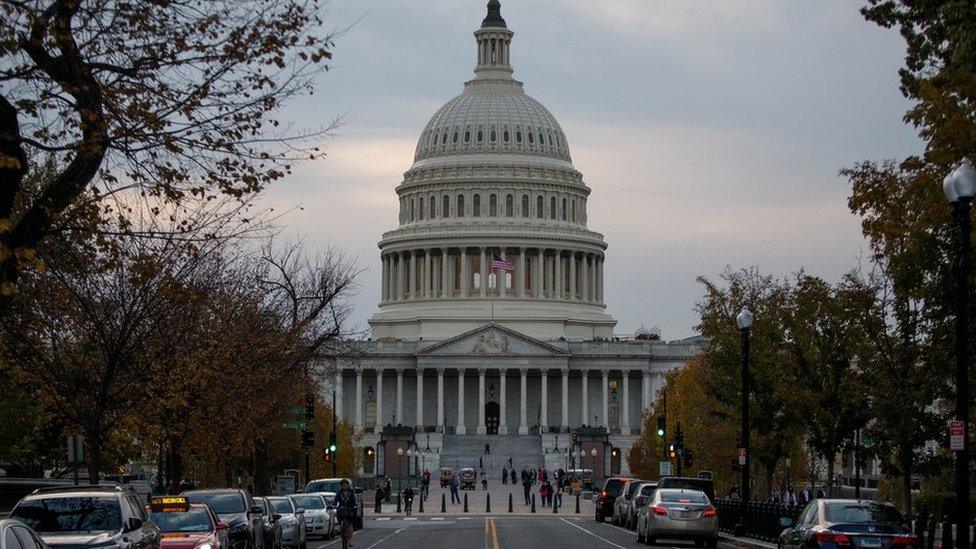Canada reacts to the prospect of a President Trump
- Published
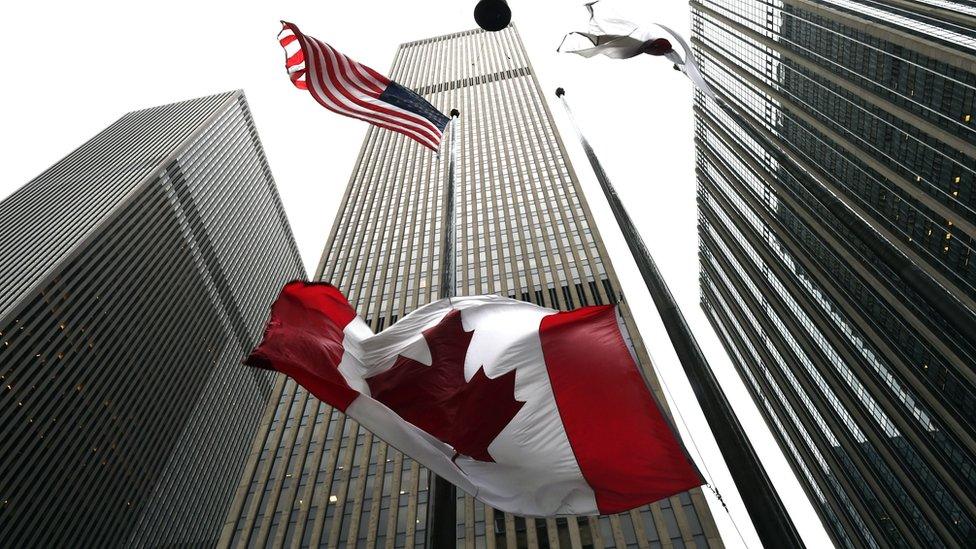
America's neighbours to the north fear how trade and diplomacy will fare in a Trump presidency.
At the Democrats Abroad watch party in downtown Toronto, the faces were glum.
Eric Mintz, a statistician, realised earlier than some that pollsters missed the significance of Donald Trump support, and that the Republican looked likely to clinch the win.
He described the atmosphere as "slowly descending into gloom".
"It's an extinction moment - he's an extinction candidate," Mr Mintz said, saying he feared that America as it exists now will come to an end.
"I think he's extraordinarily dangerous in policy and personality."
Fates linked
A few blocks away at the swanky Albany Club, a well-heeled crowd of politicians, diplomats and businesspeople were watching with disbelief as the results rolled in.
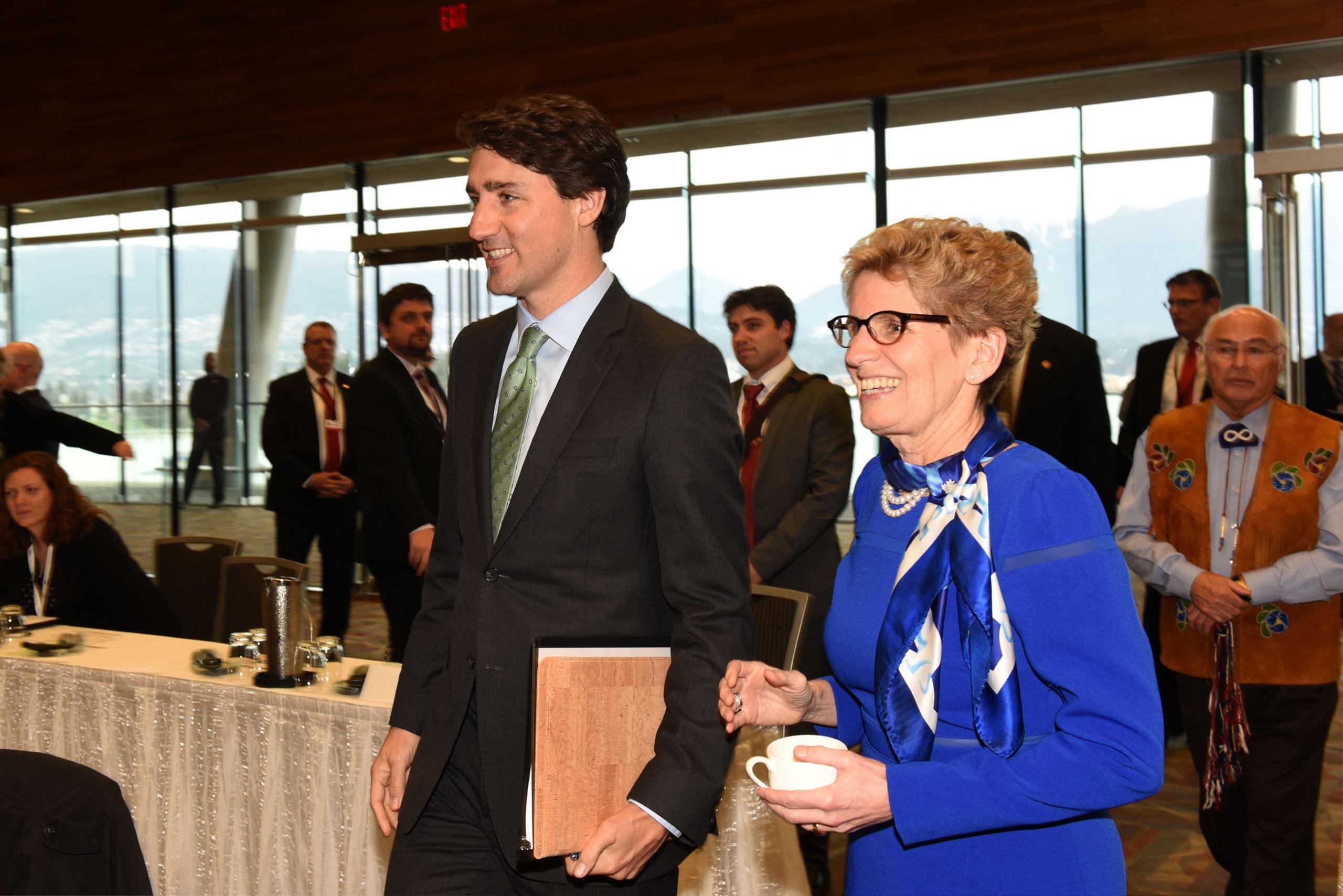
Canadian politicians like Prime Minister Justin Trudeau and Ontario Premier Kathleen Wynne will need to build a rapport with the new US administration
Ontario Premier Kathleen Wynne had backed Democratic US presidential candidate Hillary Clinton, but her concern was rooted in more than just politics.
"Our fate is absolutely inextricably linked to the United States," the premier of Canada's most populous province told the BBC.
"If we have a partner south of the border that isn't interested in getting a softwood lumber deal or making sure we continue our relationship with the auto sector, that's very, very bad for the province and it's bad for the country."
Her number one issue in the Canada-US relationship? "Trade."
Canada and the US share the longest peaceful border on Earth.
Canada's economy, based largely on foreign trade, is tied to that of the US. America is by far the country's largest trading partner, with some CA$2.3bn ($1.7 bn/£1.4bn) in goods and services crossing the Canada-US border daily.
So how Mr Trump handles trade, especially the North American Free Trade Agreement (Nafta), matters to Canada. He has called the agreement a "disaster" and has vowed to either renegotiate it or axe it completely.
Mr Trump has also said he would pressure allies to pay their fair share into the North Atlantic Treaty Organization (Nato).
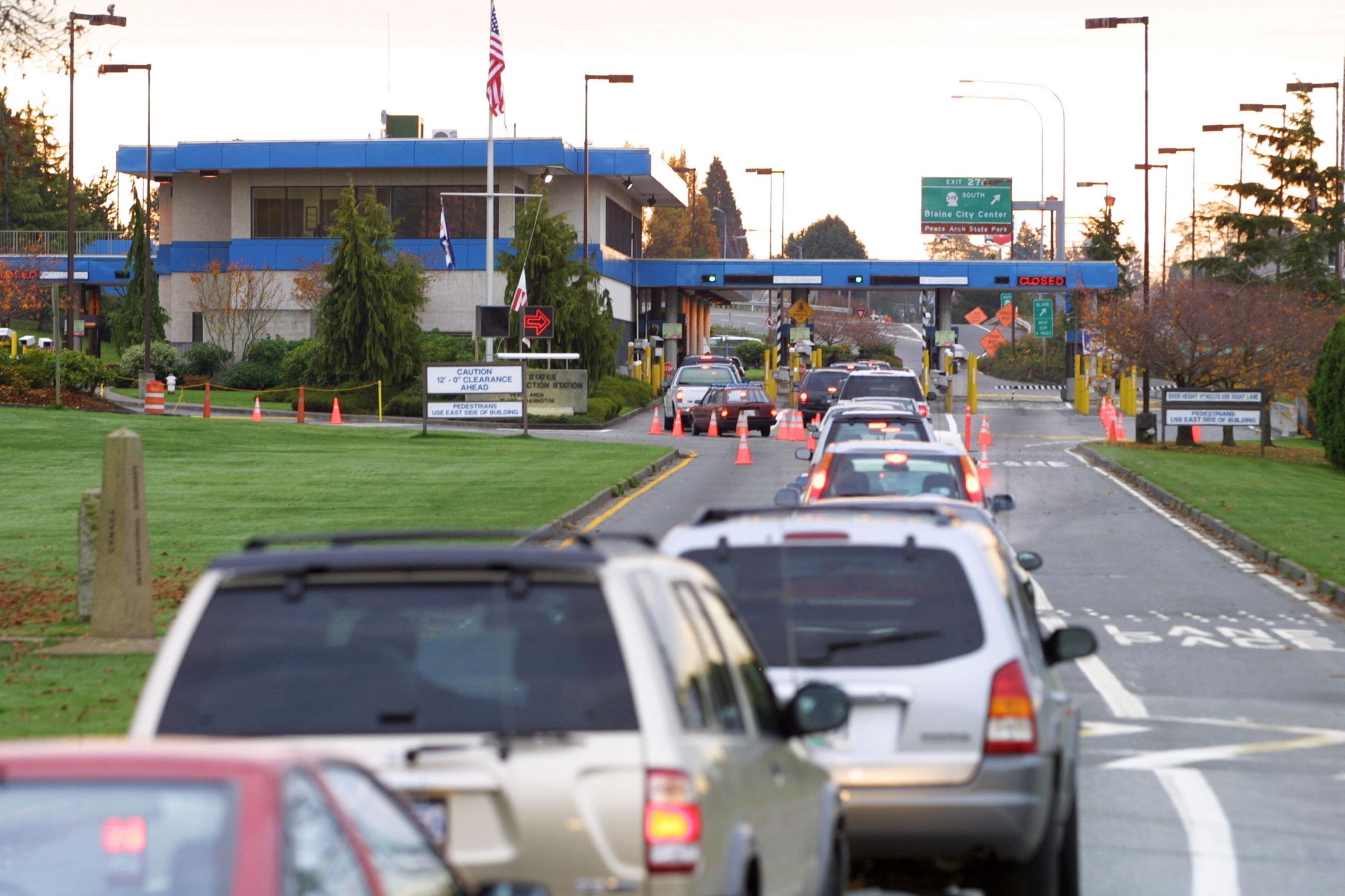
Canada and the US are major trading partners and share the longest peaceful border on Earth
Nato guidelines say member states should spend at least 2% of their gross domestic product on defence. Most countries in the military alliance, including Canada, lag behind on that figure.
Canada also shares close ties with the US when it comes to tackling shared national security concerns, climate change, and the war against so-called Islamic State.
But Mr Trump is a possible ally on one file: the Keystone XL pipeline, which the Obama administration rejected in 2015. The company behind the controversial Alberta-to-Texas pipeline says it is still committed, external to the project.
Canada, external had lined up largely behind Clinton, external.
Not everyone though.
David Woolley, 26, a communications professional, was proudly sporting a Make America Great Again baseball cap.
Once a supporter of Mrs Clinton's primary rival Bernie Sanders, Mr Woolley gravitated towards Trump. He said the real estate mogul held positions similar to Mr Sanders, such as curbing free trade and limiting American interventions abroad.
"We're flipping the coin with [Mr Trump], whereas we know Hillary will continue to represent the banksters and represent the neoconservatives," he said.
On the other side of the border, Americans were looking northward for hope. Canada's immigration website crashed as Trump wins continued to mount.

Can they make it work? Jessica Murphy, Canada editor, BBC News
Canadian prime ministers and their US counterparts have not always got along.
And from policy to temperament, it can be hard to imagine two men who have less in common than Justin Trudeau and Donald Trump.
Mr Trudeau, 44, is young, optimistic, a self-declared feminist.
Mr Trump, 70, will be the oldest man ever elected US president. He painted a pessimistic view of America throughout the campaign, and has been forced to defend his treatment of women.
Mr Trudeau has made tackling climate change one of his key policy issues. Mr Trump has said he would cut all US federal climate change spending and wants to dismantle the Paris climate agreement.
Mr Trudeau has made openness to refugees part of his brand. Mr Trump has warned admitting refugees from certain regions presents a serious threat to US national security.
But the two nations are close allies. From national security to the economy, to ensuring goods and people can move across the border, they tend to work in tandem on issues of mutual interest.
So while Mr Trudeau's relationship with Mr Trump not be the immediate "bromance" Mr Trudeau formed with Barack Obama, both will have to find a way to make it work.
- Published11 March 2016
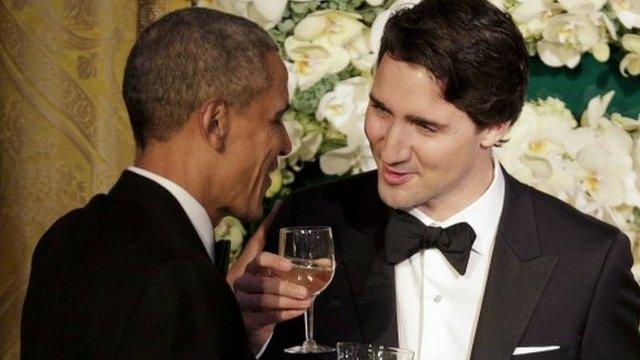
- Published9 November 2016
